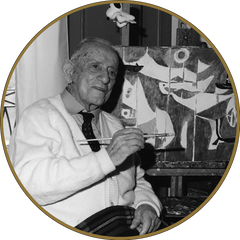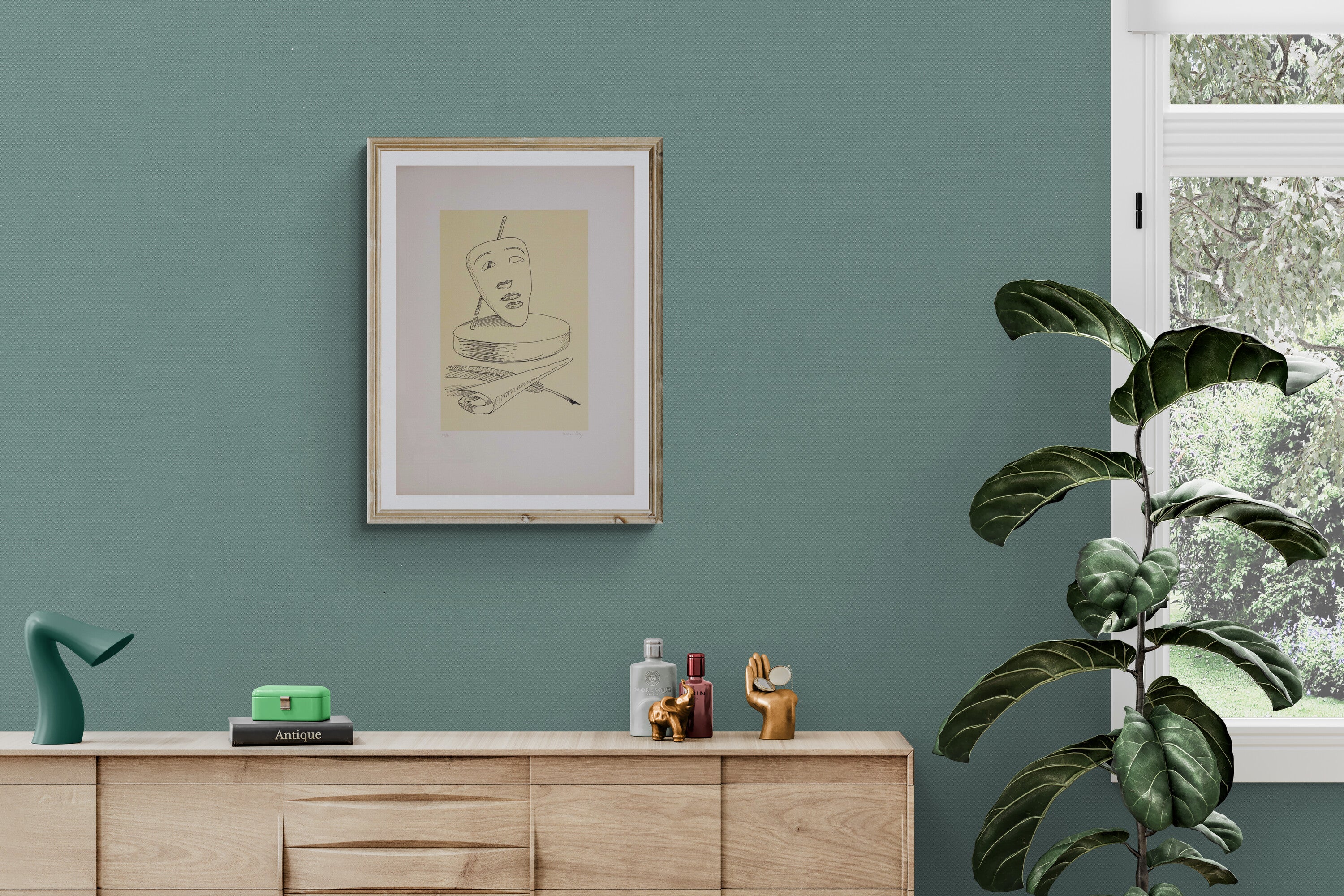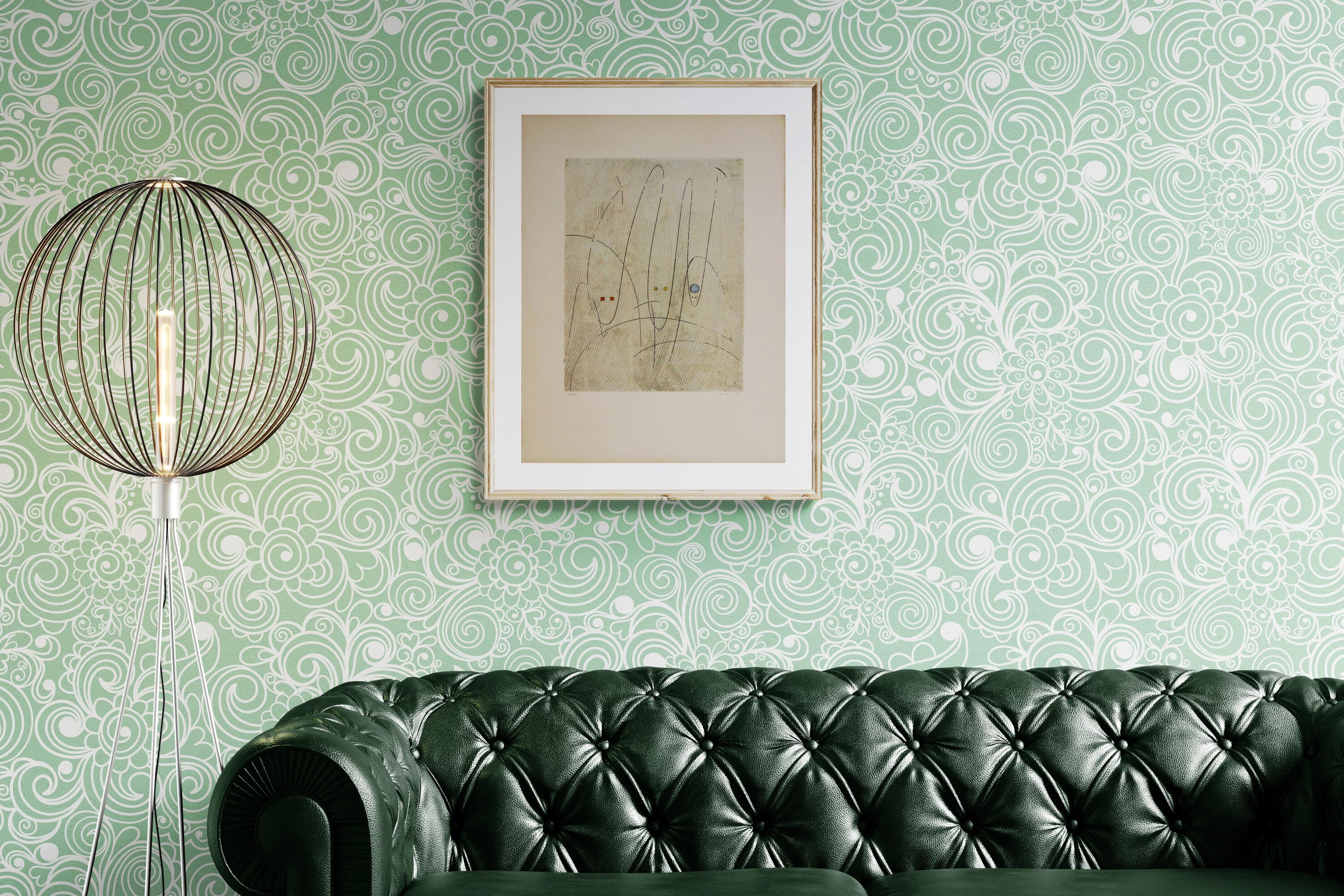Enrico Paulucci biography

Enrico Paulucci, also known as Paulucci delle Roncole, was a renowned Italian painter, born in 1901 in Genoa and passed away in 1999 in Turin. Son of General Marquis Paolo Paulucci delle Roncole and Amalia Mondo, originally from Montegrosso d'Asti, Enrico Paulucci spent his adolescence in Turin, where he pursued classical studies and graduated in both Economic Sciences and Law.
From a young age, he showed great interest in painting and, while attending university, began exhibiting his artworks in local exhibitions. During this period, he came into contact with the Futurist movement and befriended important Turin painters such as Felice Casorati, Lionello Venturi and Edoardo Persico.
In 1928, Enrico Paulucci went to Paris, where he deepened his knowledge of French painting from Impressionism onwards, drawing inspiration from the work of artists like Pablo Picasso, Henri Matisse, Raoul Dufy and Georges Braque. Returning to Turin in 1929, Enrico Paulucci joined friends Gigi Chessa, Carlo Levi, Nicola Galante, Francesco Menzio and Jessie Boswell to found the Gruppo dei Sei di Torino. The group was inspired by post-impressionist French painting and opposed the nationalism and autarky threatening the art of the time. The Gruppo dei Sei organized numerous exhibitions, including their first show in a warehouse previously used as a carpet storage in the Galleria Lombardi. Although the group dissolved in 1931, Paulucci, Menzio, and Levi continued to exhibit together in various European cities.
In Turin, he founded the Casorati-Paulucci studio together with Felice Casorati, where he organized many avant-garde exhibitions, including the first Italian exhibition of abstract art by the Milanese group Il Milione. Enrico Paulucci was also involved in the management of the La Zecca studio.
In 1938, he founded and directed the Centro delle Arti di Torino, which hosted exhibitions of emerging artists. In 1939, Enrico Paulucci was called to teach painting at the Accademia Albertina, where he later became director in 1955. His teaching was characterized by open-mindedness and the absence of academic prejudices, introducing students to the art of Cézanne and Impressionism, which until then had been little known in Italy. Among his most famous students were Mario Davico and Mattia Moreni, the latter becoming one of the main exponents of Italian abstract naturalism.
During World War II, Enrico Paulucci's studio and school were destroyed, forcing him to move to Rapallo. After the war ended, he returned to Turin and held his first exhibition dedicated to Boats at the Galleria La Bussola. Throughout his career, he received numerous awards and recognitions, including the Premio Michetti in 1958 and the Premio Cesare Pavese in 1995. He also exhibited at the Venice International Art Biennale in 1954 and 1966, obtaining a personal room in both editions.
>In his later years, Enrico Paulucci continued to exhibit his artworks in solo and group exhibitions in various Italian cities, including Turin, Venice, Genoa, Messina, and Rapallo. His artistic activity was not limited to painting but also extended to design, advertising graphics, and theatrical and film set design. He collaborated with important directors and artists, including Mario Soldati, Carlo Levi, Alessandro Blasetti, Alberto Moravia and Giorgio Strehler.
Enrico Paulucci died in Turin at nearly 98 years old. His apartment in the historic center of Turin now houses an archive documenting his artistic career. The artist always maintained a strong connection with Liguria, particularly Genoa, greatly influencing his artistic production.
The recurring subjects of his artworks are landscapes, figures, seascapes and still lifes, mainly using techniques such as oil, gouache, and graphics. His artistic legacy is celebrated in numerous exhibitions and retrospectives, both in Italy and abroad. Enrico Paulucci was a versatile artist who left a significant mark on the Italian artistic scene of the 20th century. His dedication to art, constant research, and openness to new expressive languages made him a reference point for many subsequent artists.



